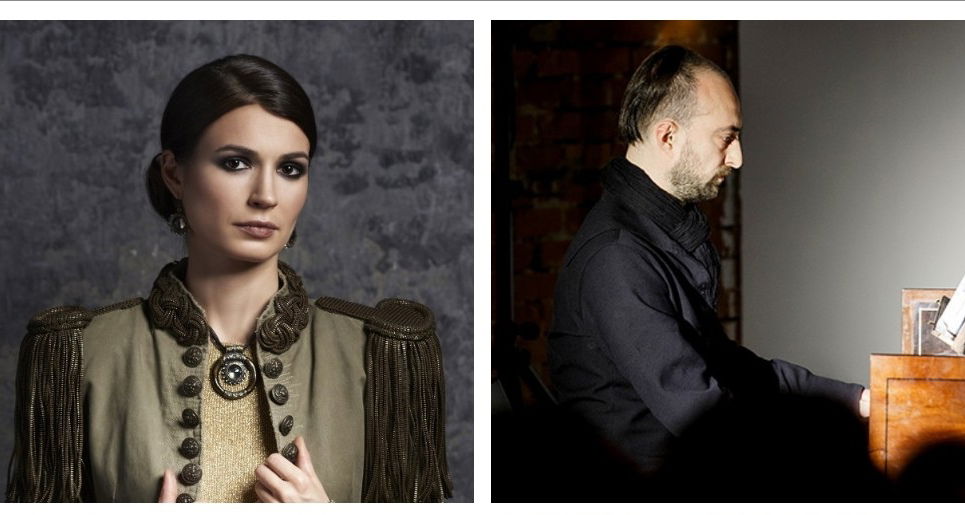

- Bring your own drinks
This is a Groupmuse Virtual Premiere
An online debut of exceptionally crafted pre-recorded content, coupled with musician + audience videochat.
Host
Dear Friends,
Join us for a premier concert from the beautiful "Art Center" Gallery in the heart of Moscow, located on the territory of the church "The Cathedral of Christ the Savior", for a very interesting program of romantic music and music from 20th century Viennese composers for piano and voice:
Soprano Natalia Pavlova and the great pianist from Moscow Pietr Aidu will perform select songs by A. Berg and A. Webern, as well as Robert Schumann's cycle "The Woman's Love and Life", accompanied by excerpts of letters from the composers.
This will be the second part of a two-part series, the first of which featured Klara Weick Schumann's cycle op 13, 6 Lieders and songs of J. Brahms; also performed by Natalia and Pietr.
Please read more about the Church here: https://en.m.wikipedia.org/wiki/Cathedral_of_Christ_the_Saviour
And the gallery: http://artcentre.moscow/about/
What's the music?
A. Berg "Ode to Love"
In love’s arms we fell blissfully asleep.
The summer wind listened at the open window,
and carried the peace of our breathing
out into the moon-bright night. –
And from the garden a scent of roses
came timidly to our bed of love
and gave us wonderful dreams,
ecstatic dreams – so rich in longing!
Translations by Richard Stokes
A. Webern "Sterne"
Stars, you are the silver bees of the night around the flower of love,
Truly, honey hangs from you, shimmering on you, let it fall into the hearts of golden honeycombs, filling it to the brim.
Oh, it is already dripping, blissfully, and permeates to the end with eternal sweetness!
R. Schumann "The Woman's Love and Life" (1838)
Translation © by Daniel Platt
Number 1.Since I saw him
Since I saw him
I believe myself to be blind,
where I but cast my gaze,
I see him alone.
as in waking dreams
his image floats before me,
dipped from deepest darkness,
brighter in ascent.
All else dark and colorless
everywhere around me,
for the games of my sisters
I no longer yearn,
I would rather weep,
silently in my little chamber,
since I saw him,
I believe myself to be blind.
Number 2. He, the most glorious of all
He, the most glorious of all,
O how mild, so good!
lovely lips, clear eyes,
bright mind and steadfast courage.
Just as yonder in the blue depths,
bright and glorious, that star,
so he is in my heavens,
bright and glorious, lofty and distant.
Meander, meander thy paths,
but to observe thy gleam,
but to observe in meekness,
but to be blissful and sad!
Hear not my silent prayer,
consecrated only to thy happiness,
thou mays't not know me, lowly maid,
lofty star of glory!
Only the worthiest of all
may make happy thy choice,
and I will bless her, the lofty one,
many thousand times.
I will rejoice then and weep,
blissful, blissful I'll be then;
if my heart should also break,
break, O heart, what of it?
Number 3. I can't grasp it, nor believe it
I can't grasp it, nor believe it,
a dream has bewitched me,
how should he, among all the others,
lift up and make happy poor me?
It seemed to me, as if he spoke,
"I am thine eternally",
It seemed - I dream on and on,
It could never be so.
O let me die in this dream,
cradled on his breast,
let the most blessed death drink me up
in tears of infinite bliss.
Number 4. Thou ring on my finger
Thou ring on my finger,
my little golden ring,
I press thee piously upon my lips
piously upon my heart.
I had dreamt it,
the tranquil, lovely dream of childhood,
I found myself alone and lost
in barren, infinite space.
Thou ring on my finger,
thou hast taught me for the first time,
hast opened my gaze unto
the endless, deep value of life.
I want to serve him, live for him,
belong to him entire,
Give myself and find myself
transfigured in his radiance.
Thou ring on my finger,
my little golden ring,
I press thee piously upon lips,
piously upon my heart.
Number 5. Help me, ye sisters
Help me, ye sisters,
friendly, adorn me,
serve me, today's fortunate one,
busily wind
about my brow
the adornment of blooming myrtle.
Otherwise, gratified,
of joyful heart,
I would have lain in the arms of the beloved,
so he called ever out,
yearning in his heart,
impatient for the present day.
Help me, ye sisters,
help me to banish
a foolish anxiety,
so that I may with clear
eyes receive him,
him, the source of joyfulness.
Dost, my beloved,
thou appear to me,
givest thou, sun, thy shine to me?
Let me with devotion,
let me in meekness,
let me curtsy before my lord.
Strew him, sisters,
strew him with flowers,
bring him budding roses,
but ye, sisters,
I greet with melancholy,
joyfully departing from your midst.
Number 6. Sweet friend, thou gazest
Sweet friend, thou gazest
upon me in wonderment,
thou cannst not grasp it,
why I can weep;
Let the moist pearls'
unaccustomed adornment
tremble, joyful-bright,
in my eyes.
How anxious my bosom,
how rapturous!
If I only knew, with words,
how I should say it;
come and bury thy visage
here in my breast,
I want to whisper in thy ear
all my happiness.
Knowest thou the tears,
that I can weep?
Shouldst thou not see them,
thou beloved man?
Stay by my heart,
feel its beat,
that I may, fast and faster,
hold thee.
Here, at my bed,
the cradle shall have room,
where it silently conceals
my lovely dream;
the morning will come
where the dream awakes,
and from there thy image
shall smile at me.
Number 7. At my heart, at my breast
At my heart, at my breast,
thou my rapture, my happiness!
The joy is the love, the love is the joy,
I have said it, and won't take it back.
I've thought myself rapturous,
but now I'm happy beyond that.
Only she that suckles, only she that loves
the child, to whom she gives nourishment;
Only a mother knows alone
what it is to love and be happy.
O how I pity then the man
who cannot feel a mother's joy!
[Thou lookst at me and smiles,
Thou dear, dear angel thou]1
At my heart, at my breast,
thou my rapture, my happiness!
Number 8. Now thou hast given me, for the first time, pain
Now thou hast given me, for the first time, pain,
how it struck me.
Thou sleepst, thou hard, merciless man,
the sleep of death.
The abandoned one gazes straight ahead,
the world is void.
I have loved and lived, I am
no longer living.
I withdraw silently into myself,
the veil falls,
there I have thee and my lost happiness,
O thou my world!
NATALIA PAVLOVA
Moscow and Rome-based soprano Natalia Pavlova (who is a descendant of Russian national poet Alexander Pushkin) has graced the stages of Carnegie Hall, Moscow Chaikovsky State Conservatory, Auditorium Parco della Musica (Rome), and many others throughout the world.
Active in performing music from antiquity to today, she was a soloist for 6 years in the Moscow theater School of Dramatic Art, directed by Anatoly Vasiliev. Natalia has sung world premiere performances and recordings of works by composers Giovanni Sollima, Venus Rey and Iraida Yusupova, composed specially for her voice, as well as pieces by Vladimir Martynov. She serves on Artistic Council of The First Cultural International Festival, Russian-Rome, Palazzo Poli in Rome, and was recently awarded the Silver Lion at the Narnia International Festival, as well as the International "Clean Sound" Award.
She has recorded 3 CD with contemporary music of Rey Jr and Yusupova in Da Vinci Classics and in Art Classics.
PETR AIDU
The winner of numerous international competitions Peter Aidu is a truly virtuoso pianist. His mastery and performance range regularly astound his audiences: from Baroque to contemporary, from the delicate performance of the finest compositions to grand scale opuses that require two-hands performance on two grand pianos at the same time.
Peter Aidu has been a part of everything new and vital that’s been happening on the Russian acoustic scene for the last ten years. The graduate of Moscow Conservatory with specialization in piano and organ is an architect, archeologist and artist of sound. He plays a number of instruments, some of them common, such as the harpsichord and grand piano, others — less common, such as the hammer clavier and lute. He performs on a giant bagpipe in Moscow parks; or arranges a show with marimbas, rung ladders, and rusty gear-wheels; or puts together a construct of sliced metal sheets that explores the correlation of sound and form.
Peter Aidu has organized a hospice for elder pianos and spends part of his time reconstructing vintage rarities. Using the 18th century textbook, he reconstructed some French dance music. His other creations include an experimental orchestra without a conductor, and Popov sound machines — clunky, but touching monsters that “speak” in place of thunderstorm, trains and fighter aircraft. His latest work is called the Sound Landscapes performance: it’s a presentation of four audio canvases made with a help of old-time theatrical machinery, and as a result the audience experiences a transcendental listening experience of alternate injections of sounds such as a carpet bombing, or a tropical rain, or the Atlantic surf.
IGOR STEPANITCH , piano (Moscow)
Igor Stepanitch is pianist and composer. He has graduated the Chopin college in Moscow and Moscow State Conservatory. He is a winner of international competitions in Russia and Italy. He has performed as a soloist and in different ensembles in Russia in the famous concert halls such us Moscow International House of Music, Moscow State Conservatory, Philarmonic of Moscow and of Saint Petersburg and others. As a pianist and composer he has participated in many international festivals in Russia, Italy and Poland. Igor is also an active photographer, and his works have appeared in exhibitions in Russia, Ukraine, Poland, Albania, Portugal.
This is a Groupmuse Virtual Premiere
An online debut of exceptionally crafted pre-recorded content, coupled with musician + audience videochat.
Host
Attendees
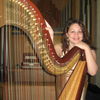



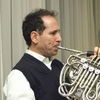

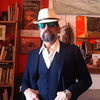
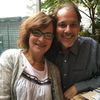





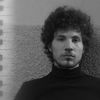

 Continue with Facebook
Continue with Facebook
 Continue with Google
Continue with Google
 Continue with Apple
Continue with Apple
Comments (2)
Comment sections are only for participants.